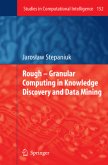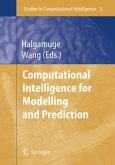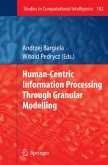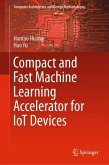This volume presents new directions and solutions in broadly perceived intelligent systems. An urgent need this volume has occurred as a result of vivid discussions and presentations at the "IEEE-IS' 2006 - The 2006 Third International IEEE Conference on Intelligent Systems" held in London, UK, September, 2006. This book is a compilation of many valuable inspiring works written by both the conference participants and some other experts in this new and challenging field.
The purpose of this volume is to foster and present new directions and so- tionsinbroadlyperceivedintelligentsystems.Theemphasisisonconstructive approaches that can be of utmost important for a further progress and imp- mentability. The volume is focused around a crucial prerequisite for developing and implementing intelligent systems, namely to computationally represent and manipulate knowledge (both theory and information), augmented by an ab- ity to operationally deal with large-scale knowledge bases, complex forms of situation assessment, sophisticated value-based modes of reasoning, and - tonomic and autonomous system behaviours. These challenges exceed the capabilities and performance capacity of c- rent open standards, approaches to knowledge representation, management and system architectures. The intention of the editors and contributors of this volume is to present tools and techniques that can help in ?lling this gap. New system architectures must be devised in response to the needs of exhibiting intelligent behaviour, cooperate with users and other systems in problemsolving,discovery,access,retrievalandmanipulationofawidevariety of "data" and knowledge, and reason under uncertainty in the context of a knowledge-based economy and society.
The purpose of this volume is to foster and present new directions and so- tionsinbroadlyperceivedintelligentsystems.Theemphasisisonconstructive approaches that can be of utmost important for a further progress and imp- mentability. The volume is focused around a crucial prerequisite for developing and implementing intelligent systems, namely to computationally represent and manipulate knowledge (both theory and information), augmented by an ab- ity to operationally deal with large-scale knowledge bases, complex forms of situation assessment, sophisticated value-based modes of reasoning, and - tonomic and autonomous system behaviours. These challenges exceed the capabilities and performance capacity of c- rent open standards, approaches to knowledge representation, management and system architectures. The intention of the editors and contributors of this volume is to present tools and techniques that can help in ?lling this gap. New system architectures must be devised in response to the needs of exhibiting intelligent behaviour, cooperate with users and other systems in problemsolving,discovery,access,retrievalandmanipulationofawidevariety of "data" and knowledge, and reason under uncertainty in the context of a knowledge-based economy and society.








